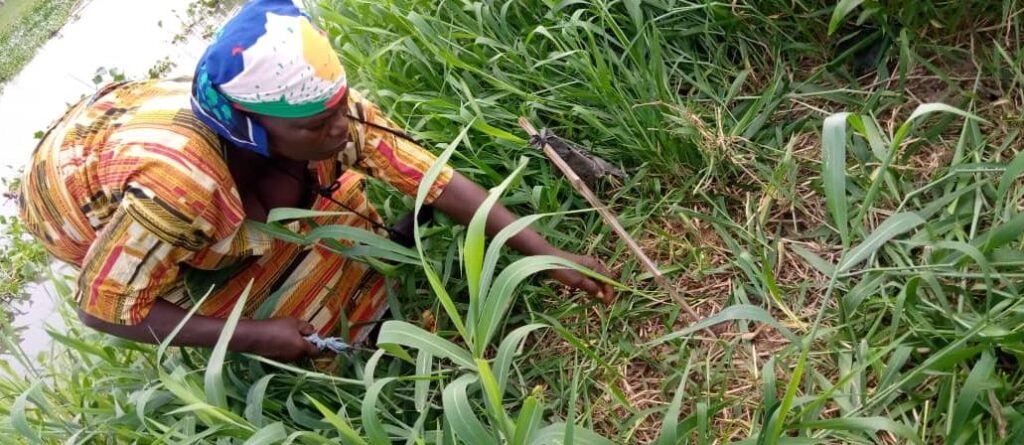Benin – Mangroves are rich ecosystems, but they are often threatened by logging. In the south of Benin, Join For Water is working on a double track: restoring the mangrove and providing an alternative for the need for wood.
Mangroves consist of mangrove trees or shrubs which are only found along tropical coasts and in river deltas. They are of great importance for people and the environment: they supply wood to people, they prevent salt water from getting into freshwater areas and protect the coasts against flooding, storms and erosion. They also provide a habitat for valuable fish and shellfish species. Mangroves are also carbon drains, meaning they absorb more CO2 than they emit. Mangroves therefore play a crucial role worldwide in the pursuit of a CO2-neutral planet.
Because of their versatility, the conservation and restoration of mangrove forests are a so-called nature-based solution for the consequences of climate change.
In the southern part of the municipality of Aguégués, mangrove forests existed on the banks of the Wémé and Lake Nokoué until the 1980s. They have all but disappeared after being cut down for timber. In the meantime, so-called acadjas have been established in this area, acadja refers to a traditional aquaculture technique, typical of this region. Acadjas are parks, as it were, constructed in shallow waters with sawn branches, in order to create a habitat for certain fish species.
Join For Water worked with the inhabitants of the municipality of Aguégués on the restoration of the mangrove and on an alternative to timber, to reduce the pressure placed on the new mangrove forest again. The community itself approached Join For Water to join forces. Both parties entered into a dialogue with each other to map everything and look for sustainable solutions together.
This already led to impressive results: an area of 8 hectares was planted with new mangrove trees and fast-growing trees such as the acacia, bamboo and eucalyptus, were also planted, on 13 hectares of land. They will serve as firewood and as construction material. Naturally, these concrete steps were the result of extensive talks, awareness-campaigning and training on maintenance techniques. A citizens’ committee will monitor compliance with the recovery measures in each village. It’s only possible to ensure the sustainability of a project like this with a broad framework in place.
Samuel
One of the participants was Samuel Ahouansou, 52 years old and a fisherman with a large family of 10 children. He says: “We no longer had wood in the village to make a fire and the area where we planted young trees was not growing, everything and everyone passed there, including the cattle. I helped plant the trees . … . Join For Water has guided us well from the start. That motivated us, because we were given explanations and we saw that the project was being followed up. We also received compensation for our work. Another plus was the training provided on the importance of mangrove forests and setting up tree farms. This way we can further protect, maintain and manage the site in the future. In the coming years we will have firewood, shade and wood for the construction of our houses. We also organise ourselves in such a way to continue progress on the work, for example, we used part of our compensation to further manage the site and buy more plants. The project has improved our family’s living conditions and food supply, as we received an income. The trees planted will benefit our generation and the future generations to come.
Finally: the numbers?
– 800 members of the local community, including 126 women, were involved in the activities,
– 18,500 mangrove seedlings were planted on an area of 8 hectares,
-32,500 acacia, bamboo and eucalyptus seedlings were planted on an area of 13 hectares.
And now it’s up to the trees: seedlings will grow and take up their role in nature.

